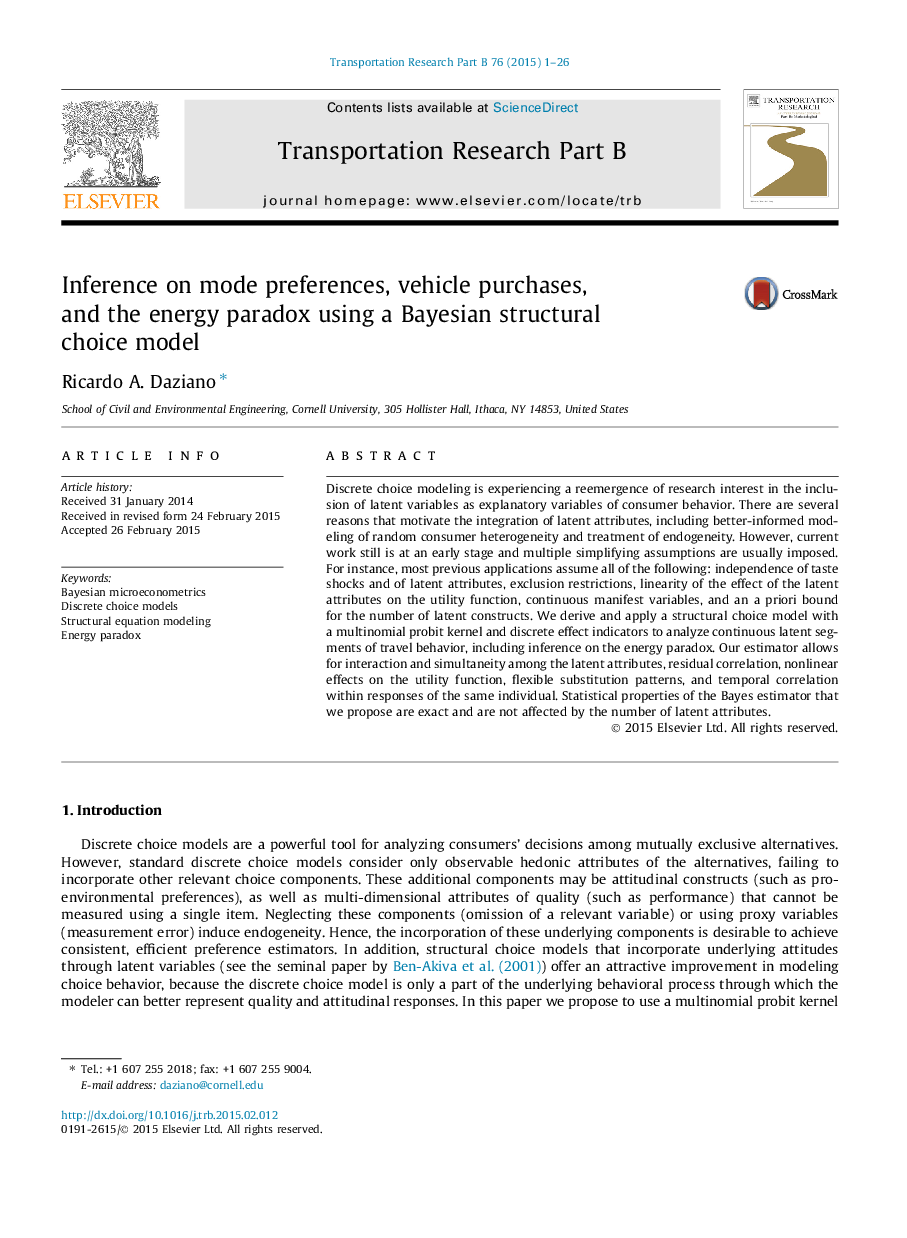| Article ID | Journal | Published Year | Pages | File Type |
|---|---|---|---|---|
| 7539443 | Transportation Research Part B: Methodological | 2015 | 26 Pages |
Abstract
Discrete choice modeling is experiencing a reemergence of research interest in the inclusion of latent variables as explanatory variables of consumer behavior. There are several reasons that motivate the integration of latent attributes, including better-informed modeling of random consumer heterogeneity and treatment of endogeneity. However, current work still is at an early stage and multiple simplifying assumptions are usually imposed. For instance, most previous applications assume all of the following: independence of taste shocks and of latent attributes, exclusion restrictions, linearity of the effect of the latent attributes on the utility function, continuous manifest variables, and an a priori bound for the number of latent constructs. We derive and apply a structural choice model with a multinomial probit kernel and discrete effect indicators to analyze continuous latent segments of travel behavior, including inference on the energy paradox. Our estimator allows for interaction and simultaneity among the latent attributes, residual correlation, nonlinear effects on the utility function, flexible substitution patterns, and temporal correlation within responses of the same individual. Statistical properties of the Bayes estimator that we propose are exact and are not affected by the number of latent attributes.
Related Topics
Social Sciences and Humanities
Decision Sciences
Management Science and Operations Research
Authors
Ricardo A. Daziano,
